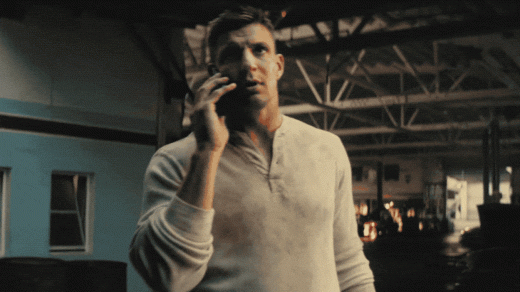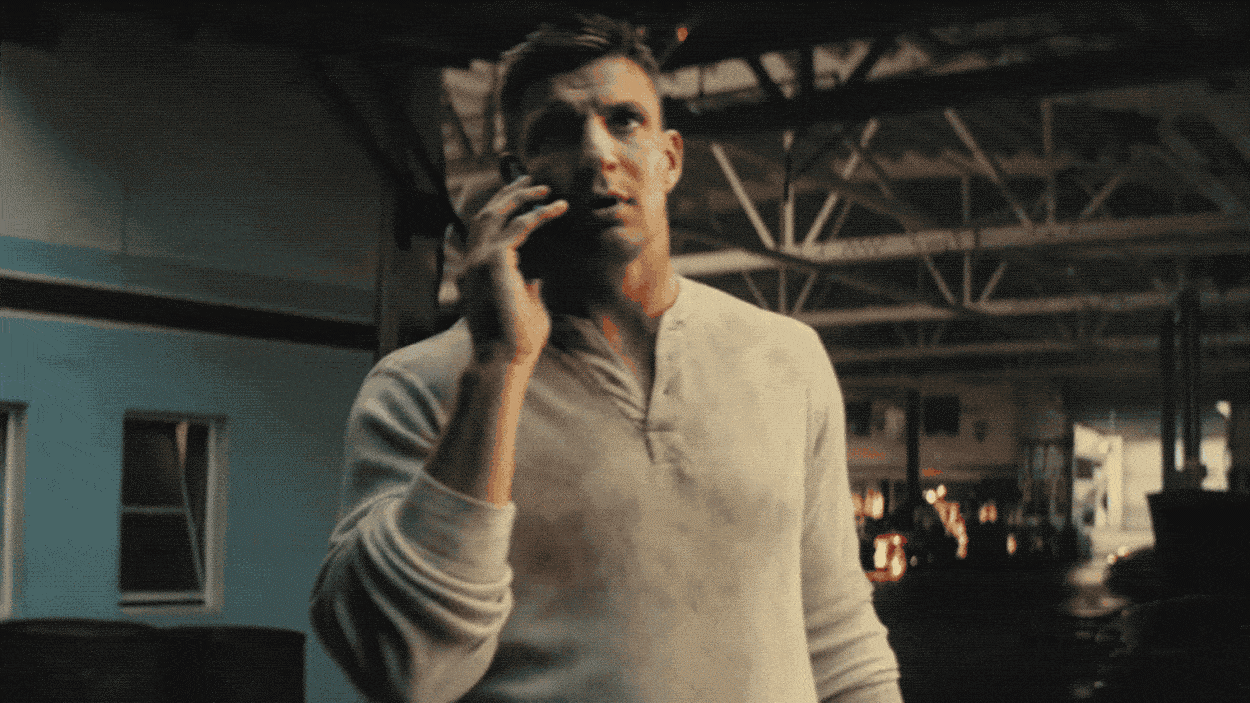Inside FanDuel’s brilliant month-long Rob Gronkowski Super Bowl ad
When sportsbook FanDuel decided to make its first-ever Super Bowl commercial, it took on the same challenge as every other brand that steps into the big game: How to make the biggest impact possible with this advertising investment?
Executive vice president of marketing Andrew Sneyd turned to his ad agency, Wieden+Kennedy New York, and gave them what he calls one of the most ambitious briefs he’s ever had. “I don’t want to make a Super Bowl ad,” he said. “How can we be a part of the Super Bowl?”
The answer? WKNY came up with a playoffs-long campaign that culminates in a live broadcast during the Super Bowl of former Pro Bowl tight end Rob Gronkowski kicking a field goal to give fans who make a Super Bowl bet on FanDuel’s Sportsbook a chance to share $10 million.
“The Kick of Destiny” is a live event, driven by a monthlong campaign of ads and social engagement that goes full meta by using self-awareness of it all as a Super Bowl spectacle as part of the joke. The first spot—Gronk talking to his agent about the live kick—will air during the wild-card round of the playoffs this weekend. The next one, called “Training,” drops Monday and will air during the Cowboys-Bucs game on ESPN. A third, called “Media,” rolls out on January 30.
‘As soon as we knew we had the opportunity to work with Rob Gronkowski, it was amazing,” says Sneyd. “He is genuinely one of the nicest celebrities to work with, and he was up for anything.”
In fact, a line for the first ad was directly from Sneyd’s first conversation with Gronk. “When I first told him the idea, that we would cut from commercial, we’d be live, and someone’s going to kick a field goal in front of 120 million people, and Rob, we want that person to be you. He said, ‘But I catch, I don’t kick.’” says Sneyd. “We took that line and put it in the first ad.”
For his part, Gronkowski appears to be taking his big kick seriously. There was a TMZ story back in November that reported on him practicing on a field, which sparked questions of whether he was coming out of retirement.
Sneyd calls legal sportsbetting the third big innovation in sports, after ESPN and the 24-hour sports network and the proliferation of big-screen TVs. “Now, with online sportsbooks, you can be in the game,” he says. “We’re an entertainment brand, and we help customers get even more out of the game. So we couldn’t show up to our first time at the Super Bowl as a traditional advertiser.”
Last year, much of the Super Bowl ad hype was reserved for the Crypto Bowl, but it was also a commercial coming-out party of sorts for American sportsbook brands, with both DraftKings and Caesars getting into the ad game. The former went for a high-concept embodiment of fortune, combined with a Joe Namath cameo, while the latter had comedian J.B. Smoove hosting the Manning family for dinner, sort of. Neither, frankly, were touchdowns.
So it’s understandable that FanDuel’s Sneyd wanted to swing a bit bigger.
He’s not alone: DraftKings is also stepping up its entertainment factor by teaming with Kevin Hart and his Hartbeat Productions for its 2023 commercial. DraftKings chief marketing officer Stephanie Sherman says that the Super Bowl is the most anticipated sporting event in the United States and a massive opportunity to connect and entertain consumers. “The biggest challenge in creating a Super Bowl commercial is finding ways to stand out in a crowded and competitive market,” says Sherman, who had not, as of press time, released details of the DraftKings ad.
“As DraftKings raises the stakes heading into one of the biggest entertainment events of the year,” says Hartbeat CEO Thai Randolph, “Kevin is also upping the ante by bringing along the full breadth of his creative and production capabilities.”
Both FanDuel and DraftKings are highlighting the notion that they are not just gambling tools but entertainment brands. As American sports betting gradually matures, Martin Conway, a professor in Georgetown University’s sports industry management department, says that sportsbook brands’ marketing not only needs to continue its significant investment in customer acquisition, but it also must figure out new ways to distinguish the brands to keep those customers on their platforms.
“We’re seeing gambling companies come up with promotional events and offers to keep people engaged,” says Conway, “because I think they know that if someone goes 30 or 60 days without participating on the platform, they tend to be gone.”
The stakes, if you will, are high. According to the American Gaming Association, the U.S. sports betting industry posted a record $1.68 billion in revenue in the third quarter of 2022, beating the previous quarterly record of $1.62 billion set in Q1 2022, and marking an 80.6% increase year over year. And as Conway notes, marketing plays an essential role in keeping fans loyal. Last year, for example, Caesars quickly nabbed 40% of the market in New York with a promotional blitz, but that quickly dropped to as low as 15%. In May, the company announced that it was completely cutting its planned $250 million marketing spend for the brand.
Conway likens it to the streaming wars. “If you look at that, it comes down to, ‘What do you have that others don’t?’ Choose any subscription company, and it’s all about the content,” says Conway. “Do I have the big event or blockbuster on my platform first? That’s where these [sports betting] companies are getting to, the idea of coming up with an event that’s unique and exclusive to [their] platform. Otherwise, people are choosing between FanDuel and MGM, and that can be as simple as how much promo credit they have.”
FanDuel’s Sneyd says the Super Bowl event and the campaign leading up to it is an opportunity to build the brand differently—not just in the market-share performance of FanDuel versus its competitors, but also in providing a better reason for why people should be betting with its book. For FanDuel, the answer is to create an entertainment event within an entertainment event.
“It’s a great way to engage the audience and make them a part of it,” says Sneyd. “Because it’s real. None of us know how it’s going to end.”
(10)



